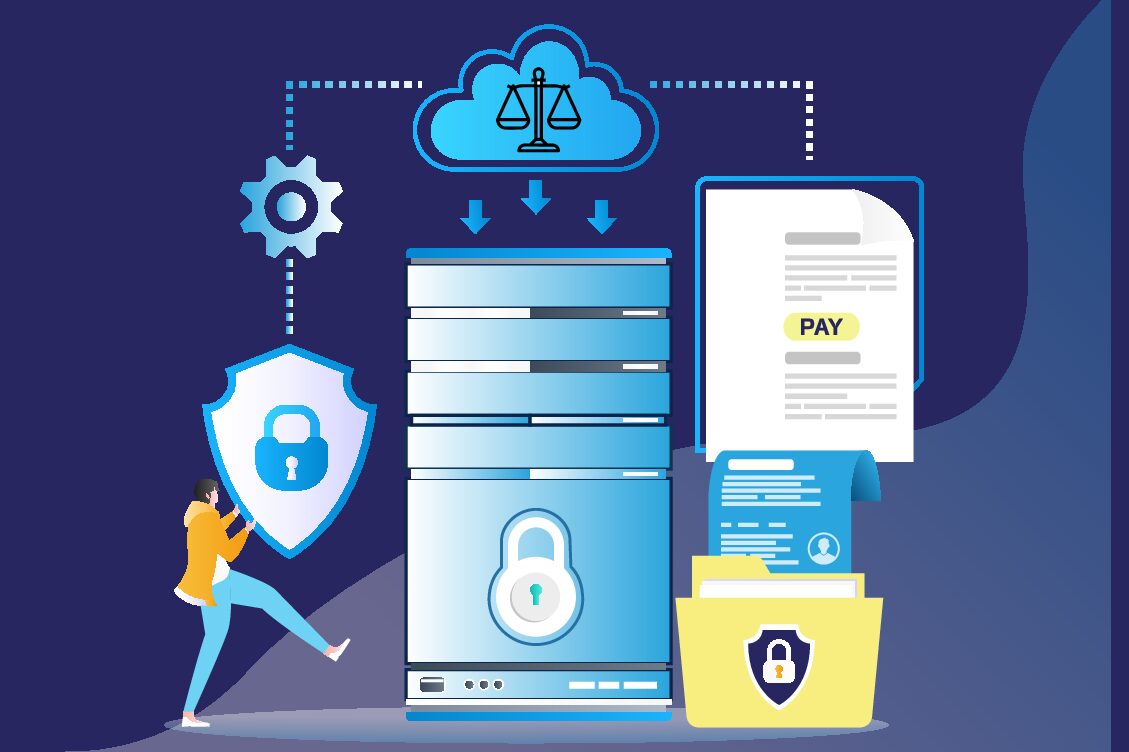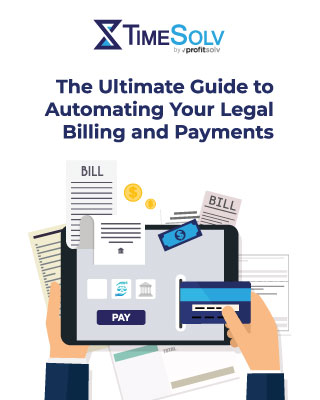We understand how challenging it can be to find the right cloud-based legal time and billing software for your firm—one that not only streamlines your practice but also enhances efficiency, accuracy, and profitability.
With so many options available, it can feel overwhelming to make the right choice. (And it’s not like lawyers have excessive amounts of free time to weigh their options, anyway!)
There are many benefits of adopting cloud-based legal billing software. This article explores the essential features to keep in mind when comparing various solutions and how these tools can supercharge your practice by streamlining your tech stack, refining accuracy with advanced time-tracking capabilities, and providing cost savings by removing manual processes.
The importance of time and billing software for law firms
Choosing the right software can make or break your law firm’s operational practices, and time and billing software is one of the most crucial. It ensures smooth operational practices, accurate invoicing, efficient time management, and compliance with industry standards.
Cloud-based, legal-specific time and billing solutions like TimeSolv are designed with law firm operations in mind—while still offering a user-friendly interface. These tools can help law firms:
- Reduce the amount of time attorneys and legal staff spend on time tracking, invoicing, and collections
- Efficiently manage various types of billing arrangements, such as hourly rates, flat fees, and contingency cases
- Use LEDES billing formats, making it easier for law firms to comply with client requirements and streamline the invoicing process
- Improve client relationships through clear and transparent payment processes
- Increase cash flow by decreasing AR
Three key features to look for in cloud-based legal time and billing software
When selecting a cloud-based legal time and billing software for your firm, it’s essential to consider factors such as ease of use, integration with existing systems, the ability to track billable hours accurately while eliminating human error, and invoicing capabilities that ensure prompt payment processing.
1. Integration with existing systems
Legal billing software should seamlessly integrate with your existing tools and applications. This ensures smooth data transfer between platforms without any loss of information or discrepancies. For instance, if you use Microsoft 365 for document management or QuickBooks for accounting purposes, ensure that the chosen platform supports these integrations.
2. Accurate time tracking
The primary purpose of legal billing software is to help legal professionals keep track of their billable hours efficiently. Therefore, it’s crucial that the selected solution offers accurate time-tracking capabilities along with easy-to-use timers and automatic calculations based on predefined rates.
At a minimum, your time-tracking and billing software should include:
- A user-friendly interface: The platform should be intuitive enough so that even non-tech-savvy users can easily navigate its functionalities without requiring extensive training.
- Detailed reporting: A comprehensive set of reports helps law firms analyze their performance metrics better—including productivity levels among team members—leading to more informed decision-making processes.
- Customization options: Legal billing software should offer customizable features, such as invoice templates and time entry categories, to cater to the specific needs of different law firms.
Some advanced solutions even offer real-time tracking features, allowing users to monitor ongoing tasks more effectively.
3. Efficient invoicing capabilities
A robust legal billing system should provide efficient invoicing capabilities that help streamline the entire billing process. This includes generating invoices based on tracked billable hours, applying discounts or write-offs when necessary, and automating recurring bills for long-term clients.
It’s also essential to have a platform that supports multiple payment methods, including credit cards and e-checks.
When your law firm improves its invoicing capabilities, everyone benefits.
- Your law firm can establish greater consistency in invoicing, decrease staff time on billing and payments, and improve the client experience
- Your clients can better understand fees and charges, settle bills, and feel more secure in doing business with your firm
The Ultimate Guide to Automating Your Legal Billing and Payments
To stay competitive in today’s legal landscape, law firms must embrace the power of technology, especially when it comes to billing and payments.
The best way to improve your law firm’s cash flow while also increasing client convenience is 'Automation'.
Download our free guide to improve your legal billing and payment process today!
Concerned about switching platforms?
We know that leaping a new legal billing software can feel a bit daunting for attorneys and law firm practice managers.
You’re not alone.
Let’s take a moment to address some of the most frequent concerns, such as cost, transferring historical data, and compliance requirements.
Cost considerations
The investment in cloud-based legal time and billing software is often seen as an additional expense that may be difficult to justify. But when you consider the long-term benefits of improved efficiency, accurate invoicing, streamlined operations through automation, and better financial reporting capabilities offered by cloud-based time and billing software, it becomes clear that the return on investment far outweighs any initial costs.
Migrating historical data
Transferring your existing data from one platform to another can be a challenging endeavor. Many attorneys worry about losing important information or facing compatibility issues during this process.
Working with the right legal time and billing software provider can mitigate these concerns. For example, TimeSolv is currently the only cloud-based provider capable of migrating all historical data out of TimeSlips into their system seamlessly. This ensures that no valuable records are lost during migration while providing peace of mind for those making the transition.
Compliance concerns
Compliance is an ever-present issue in the legal industry and for good reason. When attorneys run afoul of compliance requirements, it can damage client trust, harm reputations, and lead to fines or even disbarment.
That’s why your time and billing software should offer features that support compliance, such as:
- Automated time tracking to reduce the risk of under or overbilling
- Built-in legal-specific payment processors to ensure that nuanced payment processes for trust accounts are in line with requirements
- Standardized billing codes
- Audit logs
Spend less time tracking billables and more time serving clients with TimeSolv
With a powerful legal billing software like TimeSolv on your side, you can boost your practice’s efficiency and stay compliant with industry standards, paving the way for successful time and financial management.
When it comes to must-have features, TimeSolv checks all the boxes:
- Time tracking
- Invoicing
- Budgeting
- Expense tracking
- Credit card processing
- Document management
- Reporting
- QuickBooks integration
- Xero Accounting integration
- Dropbox integration
- NetDocuments integration
- Automatic data backup
- Data conversion
At TimeSolv, we offer comprehensive cloud-based legal time and billing software that helps law firms streamline their workflows while ensuring data security. Find out how TimeSolv can help you save time on administrative tasks so you can focus on growing your law firm’s profits—sign up for a free trial today!
The Ultimate Guide to Automating Your Legal Billing and Payments
To stay competitive in today’s legal landscape, law firms must embrace the power of technology, especially when it comes to billing and payments.
The best way to improve your law firm’s cash flow while also increasing client convenience is 'Automation'.
Download our free guide to improve your legal billing and payment process today!


















